Technological strides are transforming sectors, and the healthcare domain stands as a prime beneficiary. The rise of Information Technology in Healthcare (ITH) is more than just a trend; it’s a profound shift with tangible impacts.
The adoption of Electronic Health Records (EHR) has witnessed a remarkable surge, especially post-COVID-19. Surpassing expectations, four out of five physicians and over 90% of non-federal acute care facilities have embraced EHR systems by 2021.
But what exactly is the role of Information Technology in Healthcare? How does it benefit the industry? And what challenges and opportunities does it present?
In this blog, we navigate these questions, discuss IT adoption in the healthcare industry, weigh the pros and cons, and peek into its promising future.
So, stay tuned for insights, clarity, and a roadmap for your journey into the tech-enhanced healthcare landscape.
What is information technology in healthcare?
Information Technology in healthcare encompasses a wide range of applications. It’s the backbone of electronic health records (EHRs), telemedicine services, healthcare app solutions, and much more. Besides digitizing old paper records or making appointments easier, IT solutions revolutionize patient care and operational efficiency.
For example, EHR systems turn the tedious task of record-keeping into a streamlined, efficient process. But it’s more than just convenience; it’s about providing better, faster, and more accurate care. Isn’t that the ultimate goal for any healthcare provider?
Furthermore, healthcare app development has opened doors to personalized patient care. From appointment scheduling to remote monitoring, these apps are redefining patient engagement and accessibility.
Now, you have the answer to why IT is so crucial in healthcare. Because healthcare is an industry where every second counts and every decision can be life-altering. And Information Technology provides the precision, speed, and efficiency you need.
The adoption of IT in Healthcare is not just an upgrade; it’s a complete digital transformation of healthcare. And in this transformation lies the future of healthcare delivery – more efficient, accurate, and patient-centric.
Isn’t that a future worth striving for? So, let’s explore the adoption of IT in healthcare through various implementations.
Top IT Solutions Rising the Adoption of Information Technology in Healthcare
The surge in Information Technology (IT) adoption within the healthcare industry is a response to the evolving needs of patients and the call for more efficient, accessible care. What fuels this growth? It’s a blend of necessity, innovation, and a commitment to improving patient outcomes.
Now, let’s delve into the top IT solutions propelling the adoption of Information Technology in Healthcare.
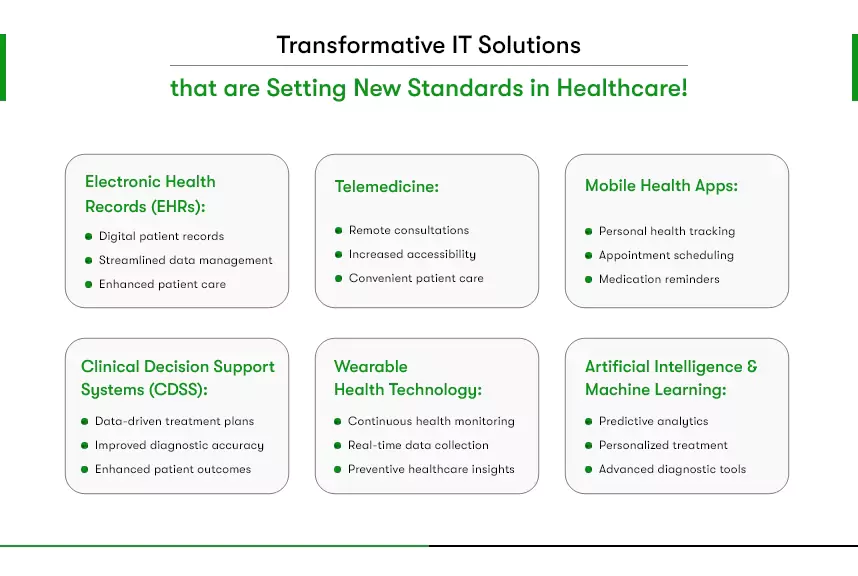
1. Telemedicine:
Telemedicine is transforming healthcare accessibility and breaking down geographical barriers. It’s about making healthcare services available in remote areas.
For example, Amwell or Teladoc are telemedicine app solutions that facilitate normal patients to ones with chronic conditions to connect with healthcare professionals for consultation from their homes.
2. Mobile Health Apps:
Mobile health apps have evolved beyond step counters. Take the example of MyFitnessPal. MyFitnessPal not only helps individuals track their physical activity but also allows them to monitor their diet, water intake, and sleep patterns.
Moreover, Medisafe serves as an elder healthcare app solution. Medisafe allows seniors to track and manage their medication schedules independently while staying connected to their care providers.
3. Electronic Health Record (EHR):
The cornerstone of modern healthcare, EHR systems simplify the storage and retrieval of patient data. EHR enhances the efficiency of healthcare providers, streamlining patient data management and making patients’ medical history available with a few clicks.
4. Clinical Decision Support Systems:
Clinical decision support systems use AI to analyze patient data to identify potential risks and provide real-time recommendations for care to clinicians. They serve as invaluable tools in diagnosis and treatment planning.
For example, IBM Watson Health, a leader in artificial intelligence (AI), offers clinical decision support systems. It can analyze vast datasets to assist healthcare professionals in diagnosing complex conditions.
5. Wearable and Internet of Medical Things (IoMT):
Wearable devices and IoMT offer a continuous stream of real-time health data. From monitoring heart rate to tracking physical activity, these technologies empower individuals to participate actively in their health management.
For example, connected insulin pens, offered by Common Sensing, provide real-time data on insulin usage, fostering personalized diabetes management.
As the adoption of Information Technology in Healthcare advances, these solutions stand at the forefront, reshaping the patient experience and enhancing operational efficiency. For founders, managers, and healthcare professionals navigating the IT landscape,
The list of IT applications in healthcare doesn’t end here. Beyond technological innovations, these applications are keys to unlocking a future where healthcare is accessible and tailored to individual needs. Take Healthcare IT consultation to explore more ways to leverage technology.

Pros and Cons of Information Technology in the Healthcare Industry
The integration of Information Technology in healthcare is a double-edged sword. While it brings numerous benefits, it also comes with its set of challenges. Let’s explore both sides to give you a balanced view.
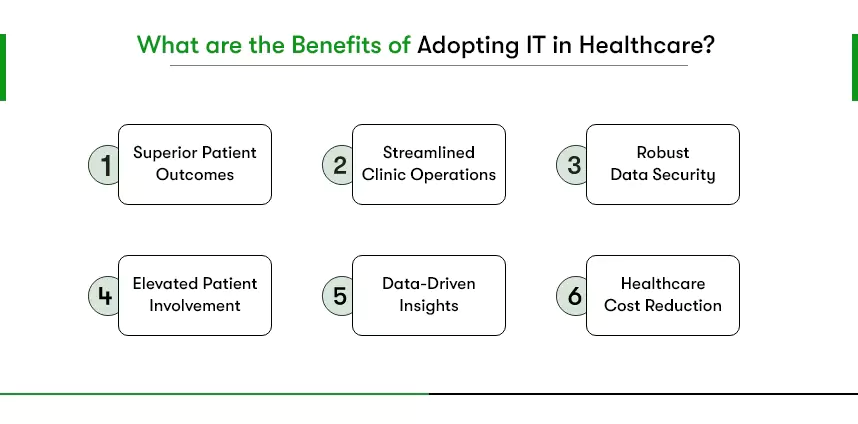
Advantages
Enhanced Patient Care: IT solutions, such as EHRs and telemedicine, have revolutionized patient care. EHRs provide quick access to patient records. So you can offer more accurate diagnoses and effective treatments. It’s truly transformative how technology elevates the quality of care.
Increased Efficiency: Automation of administrative tasks through IT solutions not only saves time but also resources. This efficiency shift allows your healthcare facility to focus more on patient care and less on paperwork.
Improved Data Management: The advent of EHRs has streamlined and secured patient data management. As a result, you get easy access to your patient’s medical history, reducing the chances of data errors.
Advancements in Treatment: Technologies like NLP in healthcare enable a better understanding and analysis of patient data, leading to more personalized treatment plans.
Challenges and how to overcome them
High Implementation Costs
Seek cost-effective technologies and phased implementation strategies. Flutter, for instance, can be a cost-effective solution for app development due to its cross-platform capabilities. Flutter app development reduces the need for separate iOS and Android development teams.
Resistance to Change Among Staff
Provide comprehensive training and demonstrate the tangible benefits of the new system. Engaging staff early in the decision-making process can also help ease the transition.
Data Security Concerns
Do not forget to implement robust cybersecurity measures and ensure compliance with healthcare regulations like HIPAA. Regularly update security protocols and educate staff about data privacy.
Integration with Existing Systems
You must choose IT solutions that offer compatibility and easy integration with existing systems. If you choose Flutter, you can rest assured as it designs apps that integrate seamlessly with existing healthcare IT infrastructure.
What does the Future of Information Technology in Healthcare look like?
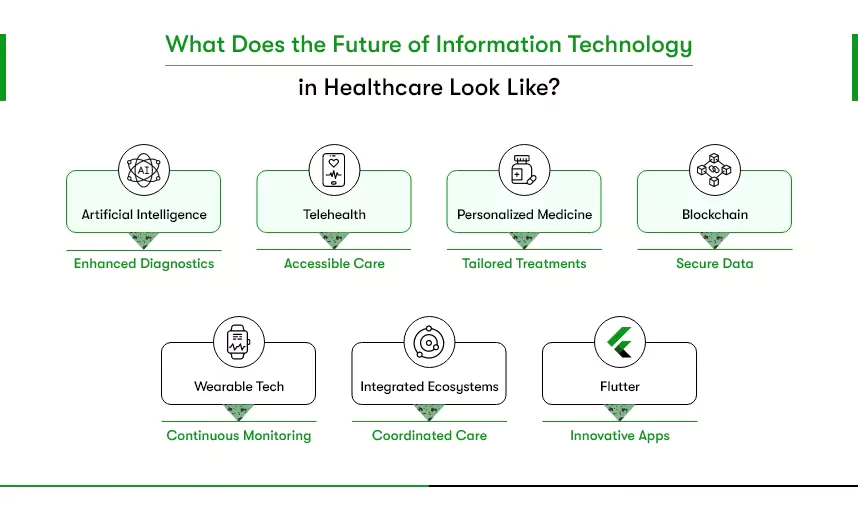
As we look towards the future, the healthcare landscape in the USA is poised for a transformative shift driven by the adoption of Information Technology. What does this mean for healthcare professionals and patients alike?
AI X Enhanced Diagnostics: Currently, AI is making strides in improving diagnostic accuracy, but the future holds even more promise. We’re moving towards AI systems capable of predicting health issues before symptoms appear, fundamentally changing the preventive care paradigm.
Telehealth X Accessible Care: Telehealth has already expanded healthcare access, especially during the COVID-19 pandemic. The next step? A global telehealth network offering seamless care, transcending geographical limitations, and transforming healthcare accessibility.
Personalized Medicine X Tailored Treatments: We’re witnessing the early stages of personalized medicine, where treatments are increasingly based on individual genetic profiles. The future could see this approach becoming the norm, with treatments tailored to each patient’s unique genetic makeup.
Blockchain X Secure Data: Blockchain is emerging as a secure healthcare data management solution. Looking ahead, it could become the gold standard for data security in healthcare, ensuring patient privacy and the integrity of medical records on an unprecedented scale.
Wearable Tech X Continuous Monitoring: Wearable technology is currently a health and fitness monitoring tool. The future promises devices that not only monitor but also predict health issues, offering a proactive approach to healthcare management.
Integrated Ecosystems X Coordinated Care: Today, we’re seeing the beginnings of integrated healthcare systems. The future envisions fully integrated care ecosystems, where every healthcare interaction is interconnected, providing comprehensive and coordinated care.
Flutter X Innovative Apps: Flutter is already revolutionizing healthcare app development with its flexibility and efficiency. The potential for future applications is vast, ranging from advanced diagnostic tools to immersive therapeutic applications.
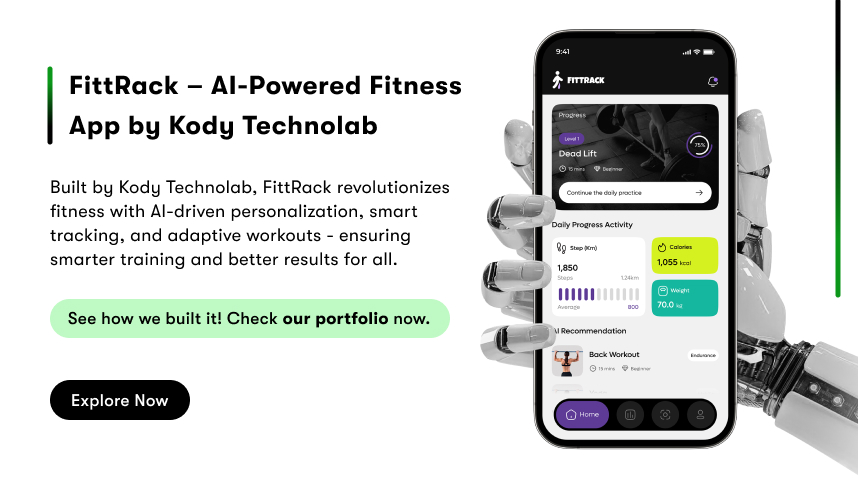
How ready are you to step into the IT-driven Healthcare future?
In exploring the role of Information Technology in the healthcare industry, we’ve uncovered the profound impact and potential of IT solutions. From AI-enhanced diagnostics to the expansion of telehealth, these technology applications are shaping healthcare’s future.
At Kody Technolab, we specialize in turning these possibilities into tangible solutions. As a leader in the healthcare industry and a pioneer in using Flutter, we help healthcare businesses adopt these advanced technologies.
You can also hire Flutter app developers from us and have them dedicated to your project. Our team’s expertise lies in crafting user-friendly, efficient, and secure applications tailored to the specific needs of the healthcare market.

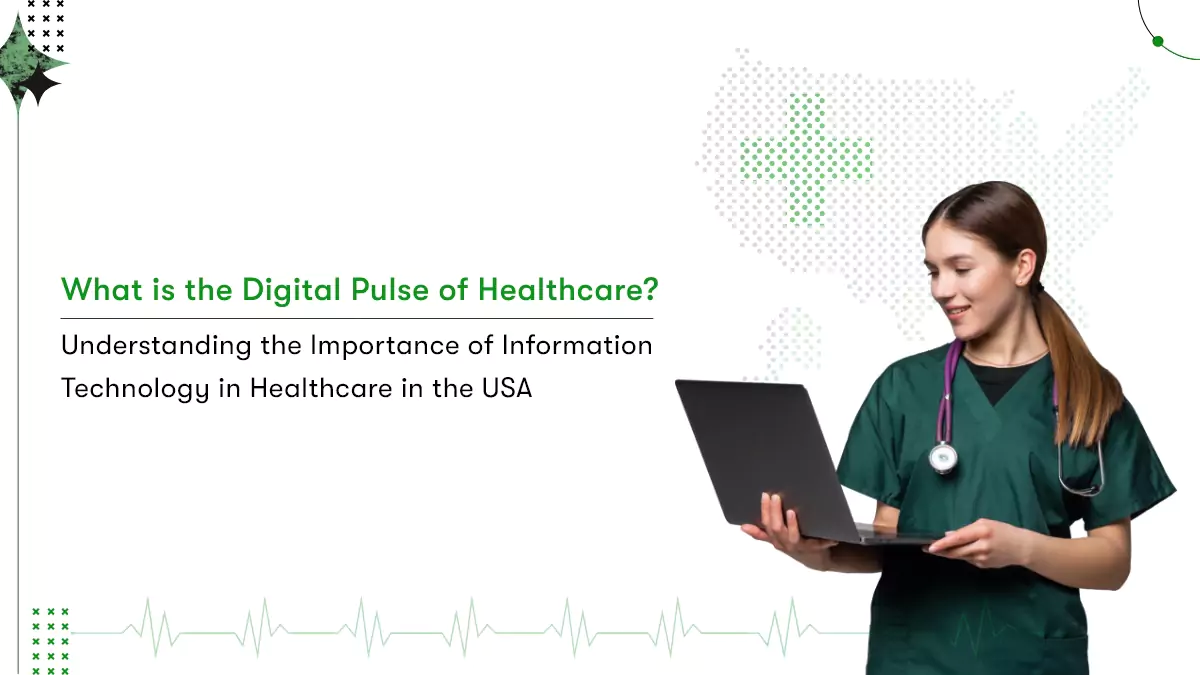
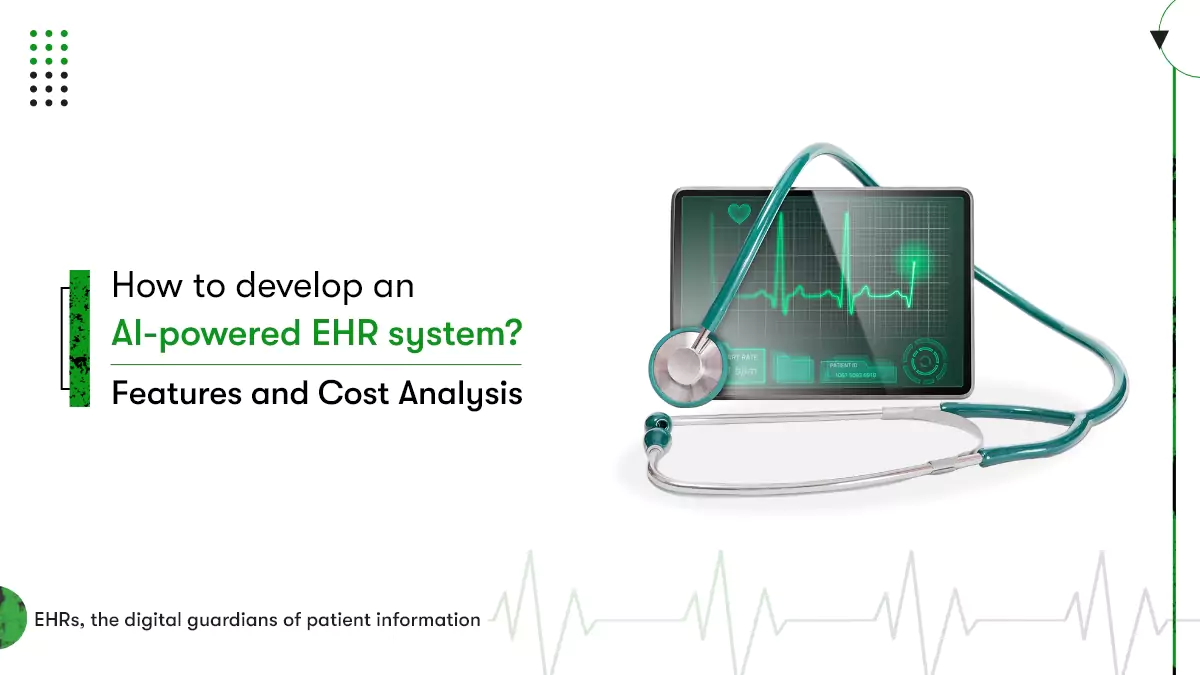
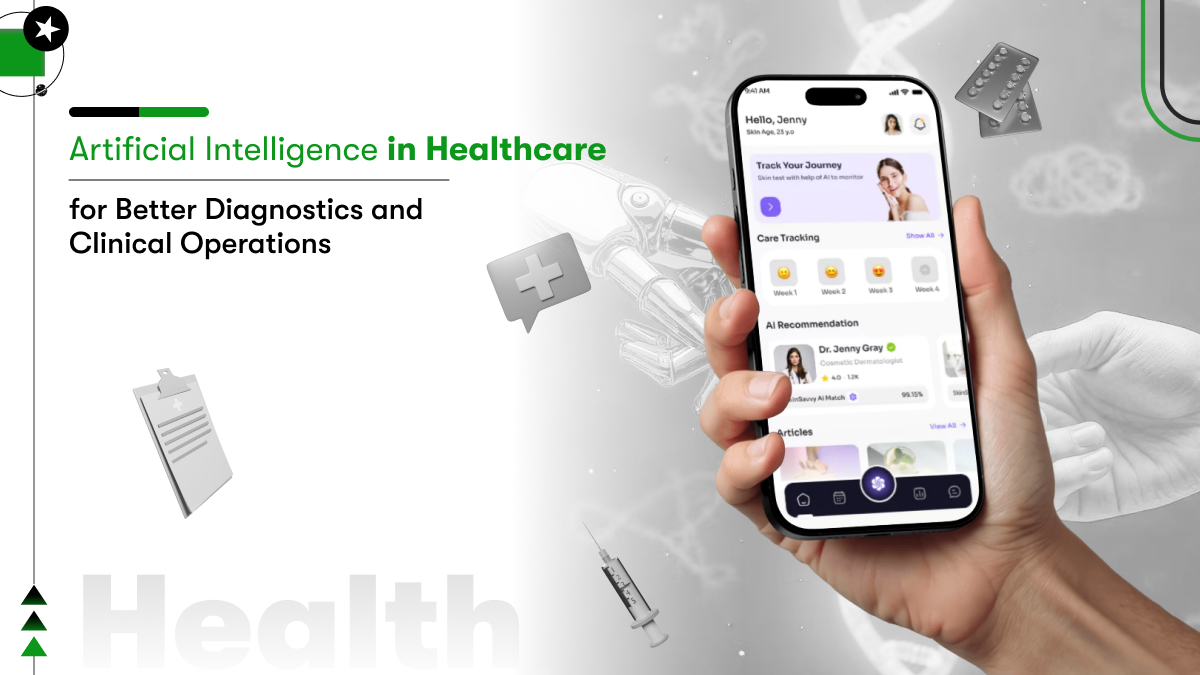
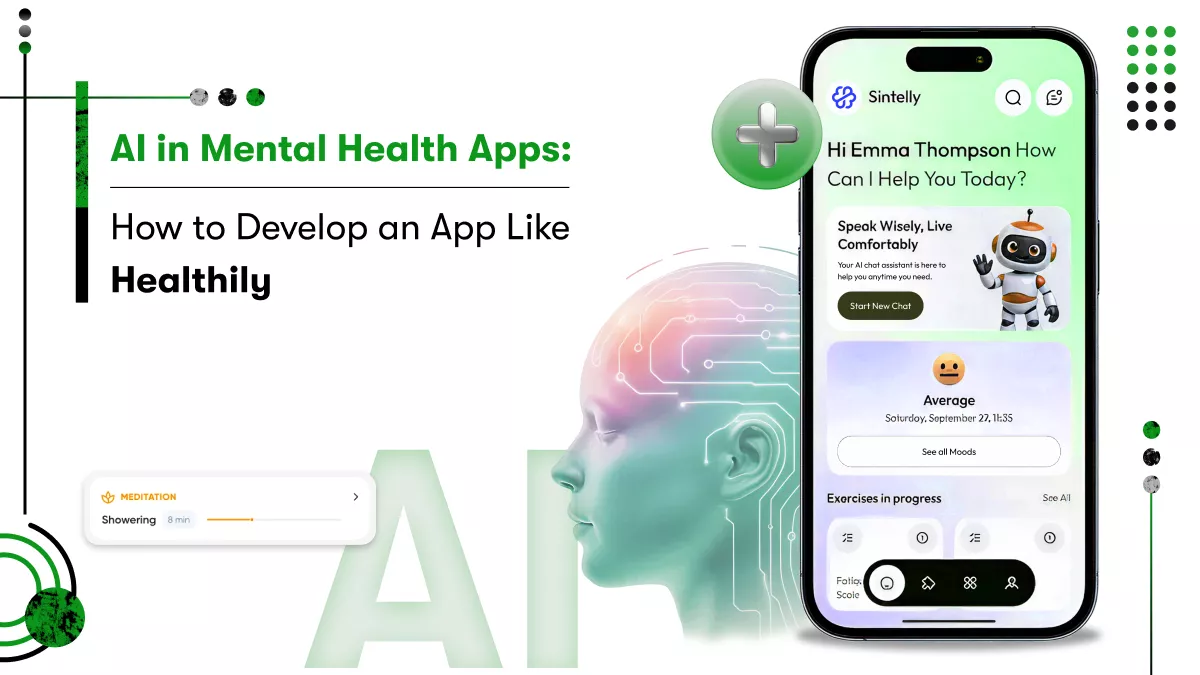
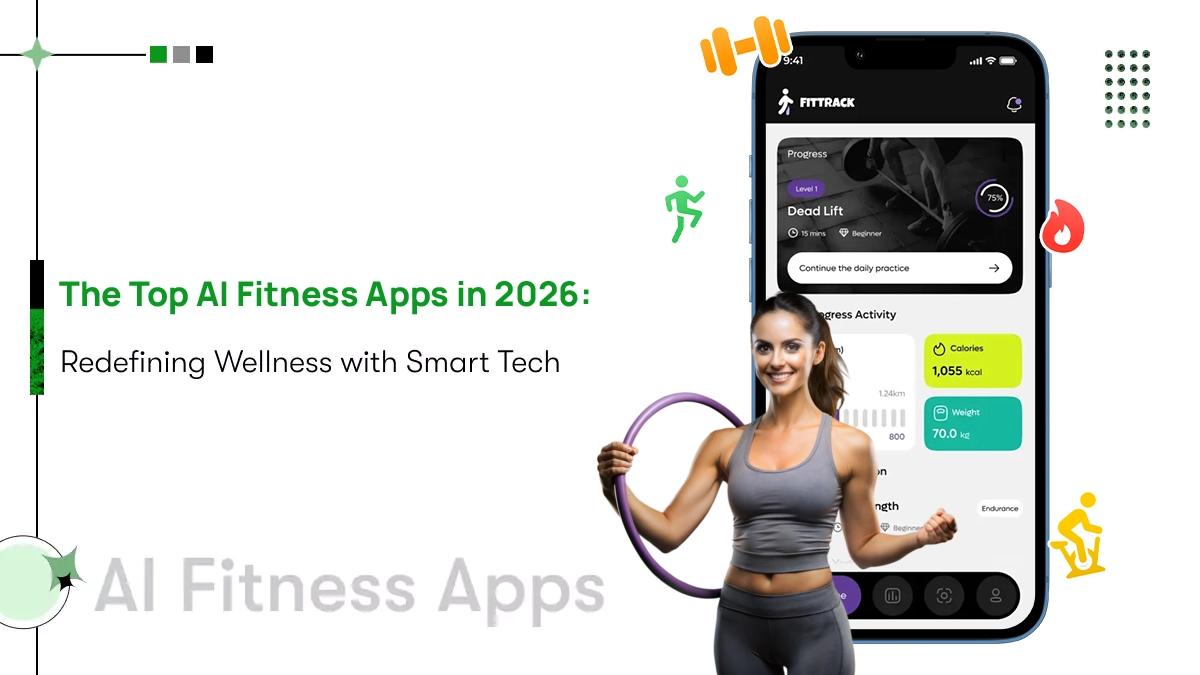






 Contact Information
Contact Information